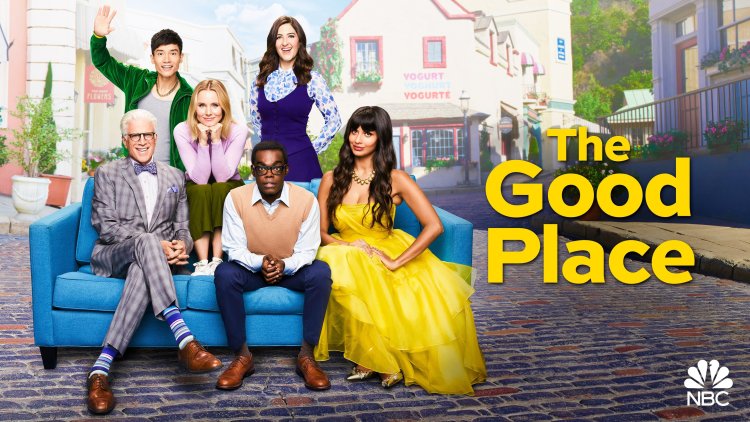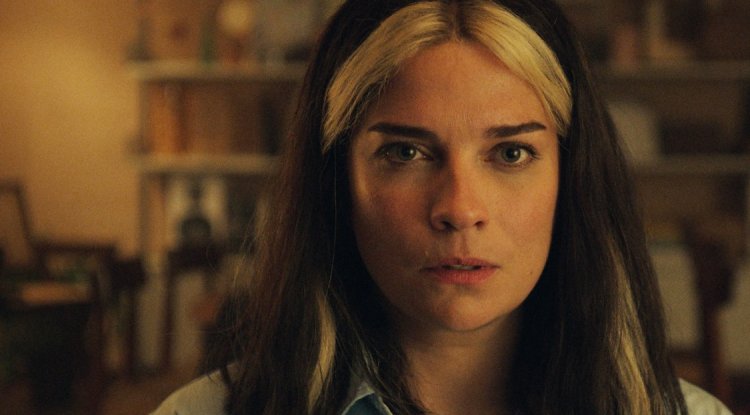The Good Place (2016)
Welcome to our comprehensive analysis of the critically acclaimed television series, "The Good Place." In this in-depth article, we explore the unique blend of humor, philosophy, and intricate storytelling that has made this show a standout in the realm of comedy. Join us as we journey through the thought-provoking and hilarious world of "The Good Place."

An Unconventional Afterlife
"The Good Place" introduces viewers to an unconventional afterlife where people are sorted into either the Good Place or the Bad Place based on their moral choices during their earthly lives. The series follows Eleanor Shellstrop, played brilliantly by Kristen Bell, as she navigates this new realm and discovers that she may have been sent to the Good Place by mistake. This premise sets the stage for a comedic exploration of ethics, human nature, and the concept of redemption.
Philosophical Underpinnings
At the heart of "The Good Place" lies a strong philosophical foundation. The show engages with concepts from various philosophical schools of thought, such as consequentialism, deontology, and existentialism. Through its witty dialogue and clever plot twists, "The Good Place" encourages viewers to ponder questions about morality, free will, and the nature of a meaningful existence. It seamlessly weaves philosophical ideas into its narrative, making it both intellectually stimulating and incredibly entertaining.
Hilarious Ensemble Cast
"The Good Place" boasts a hilarious ensemble cast that brings the vibrant and quirky characters to life. Kristen Bell's portrayal of Eleanor Shellstrop, a morally flawed yet endearing protagonist, is a comedic tour de force. The supporting cast, including William Jackson Harper as the earnest ethics professor Chidi Anagonye, Jameela Jamil as the self-obsessed socialite Tahani Al-Jamil, and Ted Danson as the charismatic and enigmatic architect Michael, deliver performances that are both comedic and emotionally resonant. The chemistry among the cast members is electric, resulting in a dynamic and unforgettable comedic ensemble.
Subversive Storytelling
One of the strengths of "The Good Place" is its subversive storytelling. The series constantly keeps viewers on their toes with unexpected plot twists, clever narrative devices, and intricate character arcs. Just when audiences think they have the show figured out, it surprises them with new revelations and game-changing developments. This unpredictability adds an extra layer of excitement and depth to the series, ensuring that viewers remain engaged and invested in the story.
Tackling Existential Questions with Humor
While "The Good Place" delves into weighty philosophical concepts, it does so with a generous dose of humor. The show strikes a delicate balance between intellectual depth and comedic levity, using humor to explore existential questions in a relatable and accessible way. The witty dialogue, clever puns, and situational comedy provide comic relief without detracting from the profound themes being addressed. This unique blend of humor and introspection sets "The Good Place" apart and makes it a refreshing and thought-provoking viewing experience.
Multilayered Character Development
"The Good Place" excels in its multilayered character development, allowing each character to grow and evolve throughout the series. As the characters navigate the complexities of the afterlife, they confront their past mistakes, grapple with their identities, and strive for personal growth. The nuanced character arcs explore themes of redemption, friendship, and the capacity for change, making the characters relatable and endearing. This depth of character development adds emotional depth and resonance to the comedy, elevating "The Good Place" beyond a typical sitcom.
Social Commentary and Ethical Dilemmas
Beyond its philosophical musings, "The Good Place" also offers social commentary and presents ethical dilemmas for viewers to contemplate. The series tackles issues such as moral relativism, environmentalism, and the consequences of our actions on others. It uses its comedic framework to shed light on real-world problems and encourages viewers to reflect on their own values and choices. By engaging with these thought-provoking themes, "The Good Place" transcends its genre and becomes a vehicle for meaningful discussions.
A Satisfying Conclusion
"The Good Place" concluded its run with a satisfying and emotionally resonant finale. The series managed to tie together its intricate narrative threads, deliver poignant character resolutions, and provide a thought-provoking conclusion to its philosophical explorations. The finale left audiences reflecting on the show's core messages about the importance of human connections, the pursuit of personal growth, and the potential for redemption.
Also Check Margot Robbie wants Poison Ivy to join DC!
Conclusion
In conclusion, "The Good Place" is a philosophical comedy that challenges traditional notions of heaven and hell while delivering side-splitting humor and heartwarming moments. With its blend of sharp writing, exceptional performances, and thought-provoking storytelling, the series has left an indelible mark on the comedy genre. Whether contemplating the nature of morality or simply enjoying the witty banter between characters, "The Good Place" invites viewers on a comedic and philosophical journey that is both intellectually stimulating and incredibly enjoyable.




























